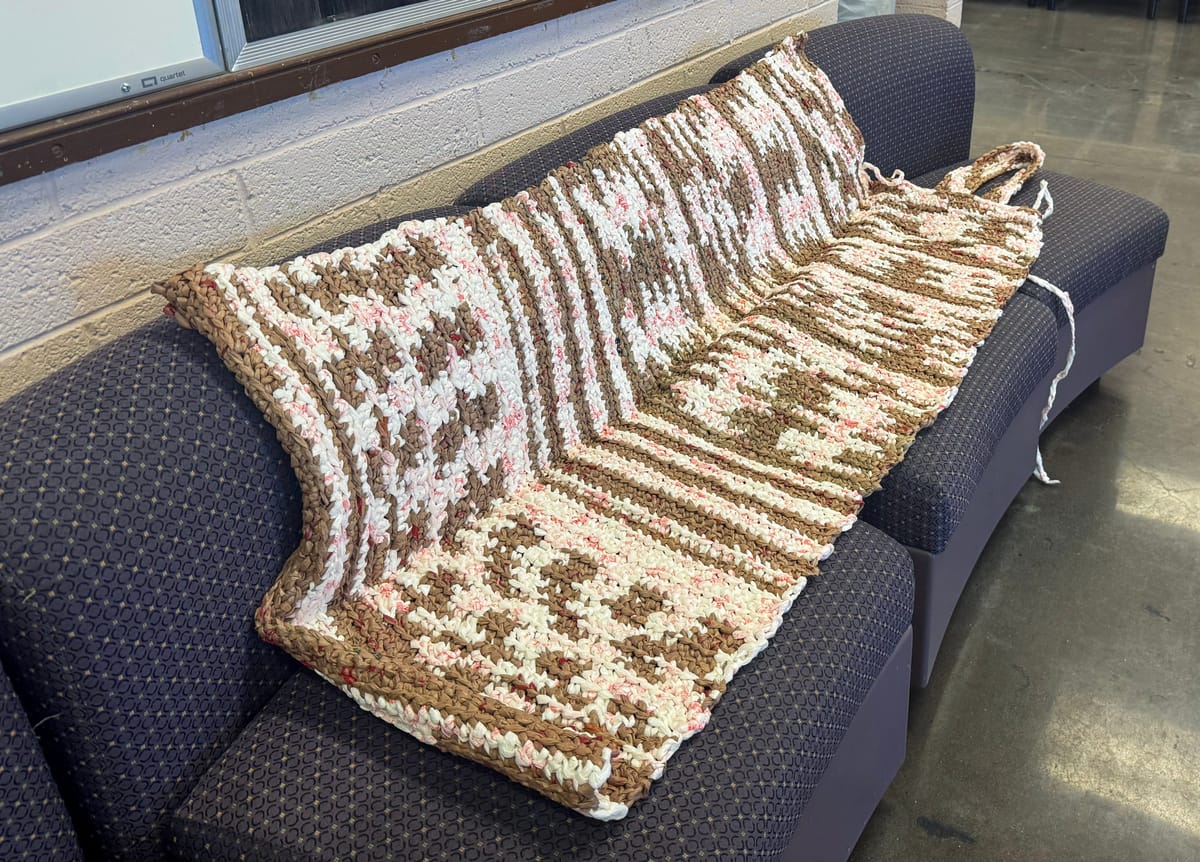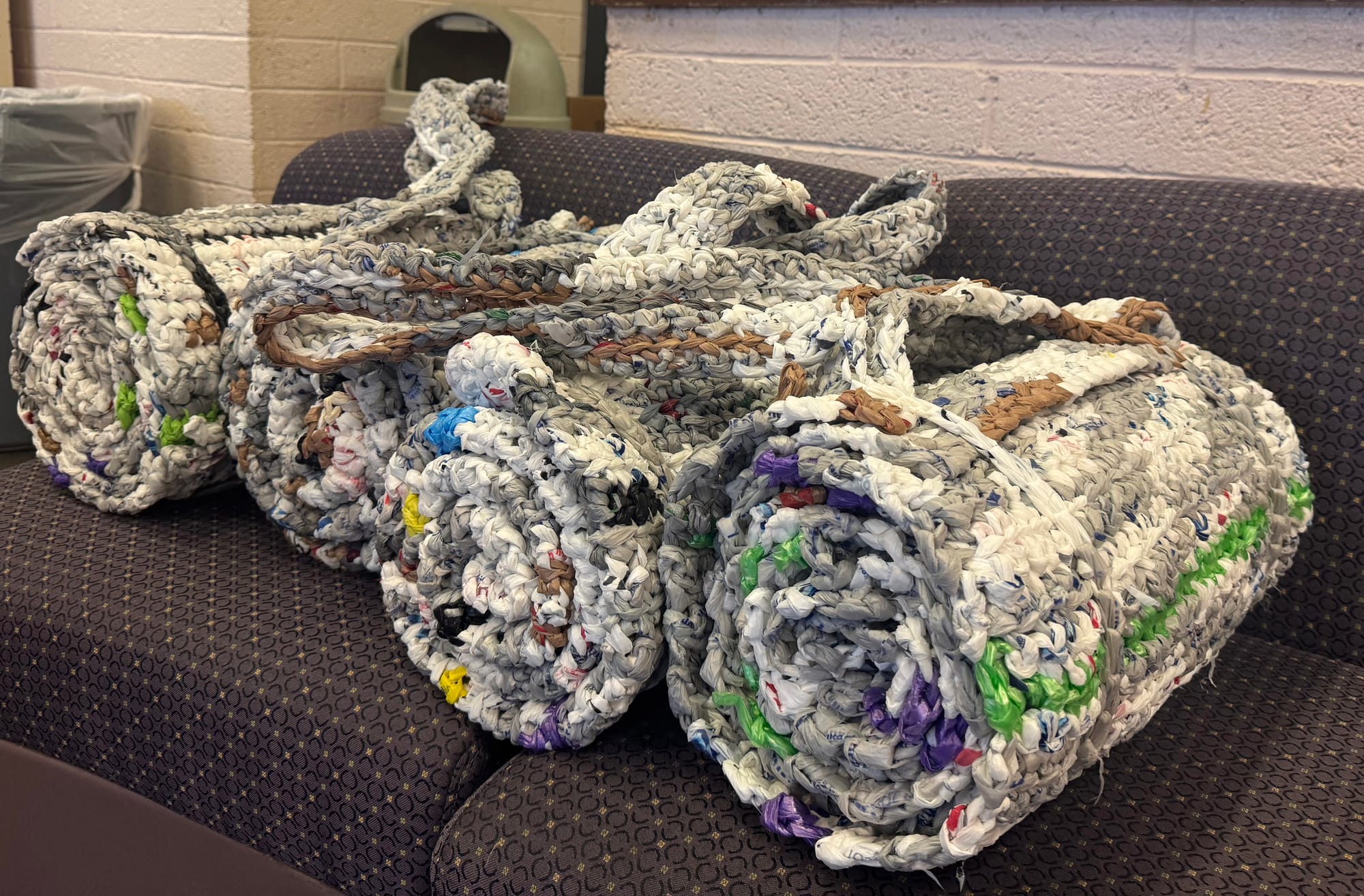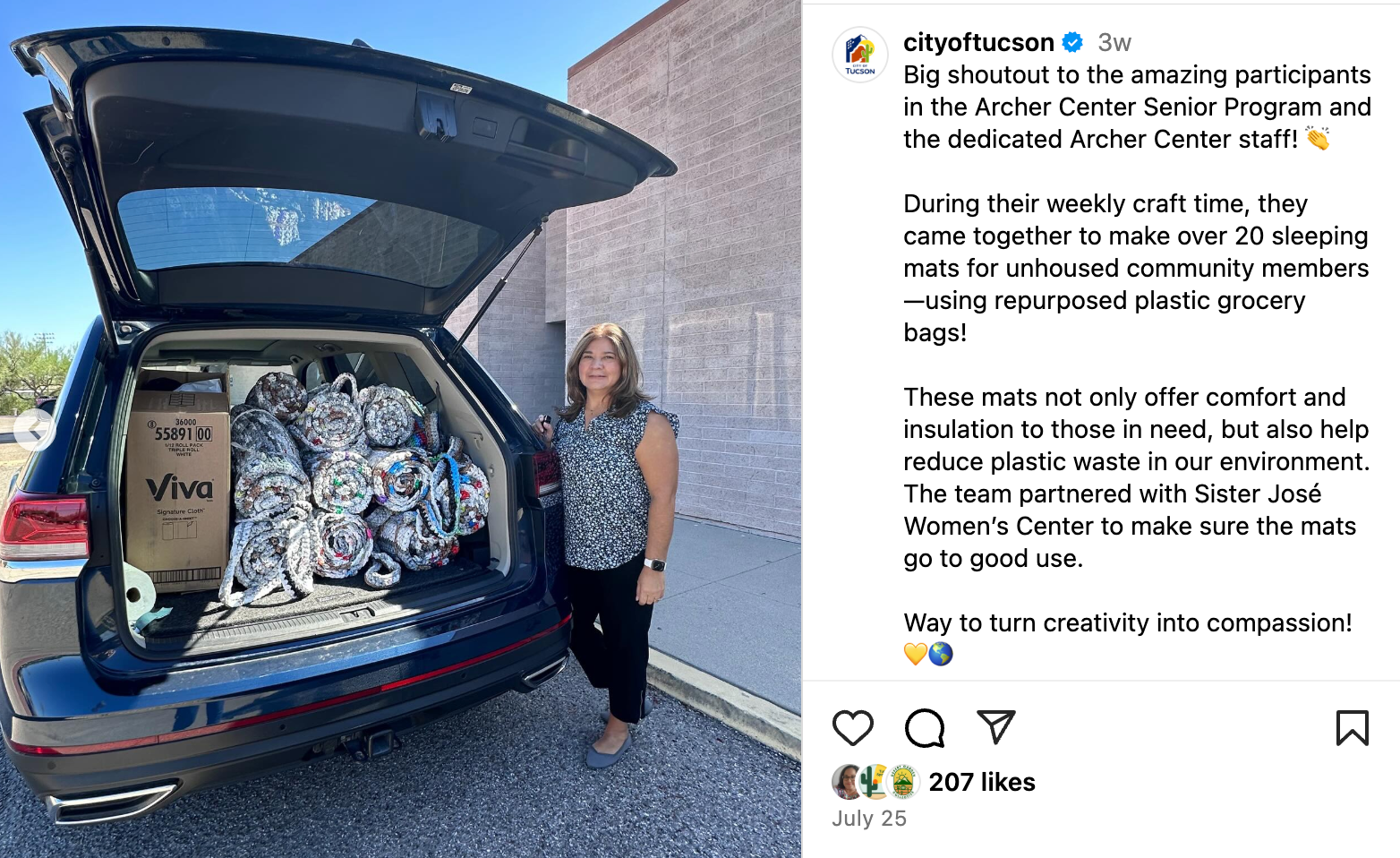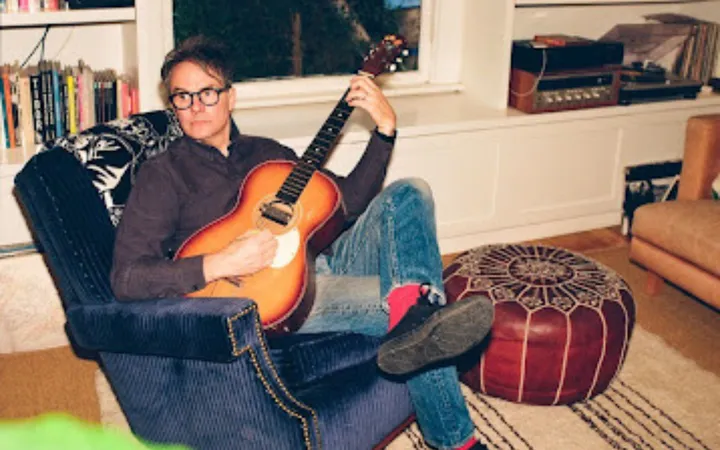Archer Center volunteers repurpose bags into sleeping mats
Retirees at the Fred Archer Center are transforming donated plastic bags into lightweight sleeping mats, which they deliver to Sister José Women’s Center to support women experiencing homelessness.

At the Fred Archer Center, a group of retirees is turning something most people throw away into something life-changing: plastic grocery bags transformed into lightweight sleeping mats for women experiencing homelessness.
The project originated from group member Patricia Dotts’ trip to New York, where she watched people turning plastic bags into yarn — or plarn, as she called it. She decided she could do it too.
“Pat started doing her thing and showing us how to do it,” said Archer Center employee Mary Horton. “And then someone else jumped in, and someone else. And I think we have like seven people.”
The mats, now 30 inches wide and 5 feet long, are designed to be light and easy to carry. Earlier versions were bigger and lacked handles, but the team refined the design to make them more practical.
The group uses plastic bags that are donated to the center, or Dotts travels to nearby Walmart stores to collect extras.
According to Dotts, each mat takes between 500 and 700 bags.
“The (Walmart) on Broadway, this lady works behind the counter, and every time I come in, she says, ‘Oh, I’ve got some bags for you.’ I actually took a mat down here so she could see what we were doing,” Dotts said. “That's very cool, because a lot of people, I think they just kind of shrug you off, because they think you're kidding.”
People who are interested in helping with the project are encouraged to show up at any time while the center is open. Instructions are posted in the craft room, and if the mat-making itself feels too intimidating, a person can start with flattening bags.
“All the steps are over there,” Horton said. “We're open six days a week if they want to come in, bring your drink, bring your snacks. We'll plug in the radio.”

Dotts knew from the beginning that she wanted this project to benefit unhoused individuals, but at first, the group wasn’t sure how to get the mats to the right people.
“We decided we're going to contact Sister José’s so we can be women helping women,” Horton said. “When they have busy nights where there's not enough beds, then they get a mat.”
While the idea seemed clear to Dotts, Horton said there has been some pushback in online communities, either on Facebook or on the Nextdoor app, where she posted asking for bag donations.
“There've been some, you know, keyboard warriors that said, ‘Oh yeah, great. Use a bunch of bags to make a bed for a homeless guy, and we'll be sweeping it up tomorrow,’” Horton said.
Horton said she understands that a sleeping mat won’t solve a person’s problems, but still believes in the group's goal.
“This doesn't fix, but it helps. It's something,” she said. “And if this guy can get a better night's sleep, then maybe tomorrow he can think a little more clearer, be like, ‘Hey, I'm going down to the VA.’”
Giving back to the community has always been on Dotts’ mind. She used to work for Habitat for Humanity, building shelters and homes.
She said that growing up in South Carolina, she never saw the homeless population. Being in a place where it’s so visible made her want to do something to help out.
Horton said Dotts rarely sits still and is constantly trying to turn out as many mats as possible. Dotts retired in 2000 but said she is not ready to stop helping others.
The group is planning to deliver the mats to Sister José’s each quarter, so there won’t be a tight deadline, allowing it to be a therapeutic escape for members.
While some are more focused on the project, like Dotts, others use their time to connect with others and build skills. One member, a stroke survivor, has been using the activity to help refine his motor skills.
“He usually flattens out the bags and gets them ready to cut, which is good for his motor skills,” Horton said. “He's a little shaky, but getting the bags out flat, the way (Patricia is) doing is really good for him.”

The group also manages to mix humor into the work.
One of the steps is to “strip” the bags, or cut them horizontally into long strips that can be knotted together and eventually turned into a plarn ball. Dotts and Horton both like to call the people who do this “strippers.”
Dotts joked that they don’t make anyone strip until they make it past stage one, laying and folding the bags.
The last donation to the women’s shelter included 20 mats, and in the weeks since, the group has already turned out five more. The next delivery will be in November, and Horton is confident they will far exceed 20.
Dotts and Horton view the project as an opportunity for people to reduce their plastic bag waste while also creating something that benefits others.
The skill is also versatile, with Dotts saying that once a person learns the technique, they can use it to make other items.
“You can make hats, you can make tote bags to carry your groceries in, or your personal tote bag,” she said. “You can use it for anything that you can crochet with yarn.”
The group is always looking for more people to help assemble mats or donate plastic bags to the center. Walmart and Safeway bags tend to be the best, said Dotts, adding that Fry’s bags tend to tear.
Inexpensive plastic tablecloths also work and help add colors and designs to the mats, which Horton says the women at the shelter have loved.
The center is planning to offer a new craft activity turning old, worn shirts into rugs as part of its series of recycling projects.
Emma LaPointe is a journalism, political science and German Studies major at the University of Arizona and Tucson Spotlight intern. Contact her at emma.m.lapointe@gmail.com.
Tucson Spotlight is a community-based newsroom that provides paid opportunities for students and rising journalists in Southern Arizona. Please consider supporting our work with a tax-deductible donation.



